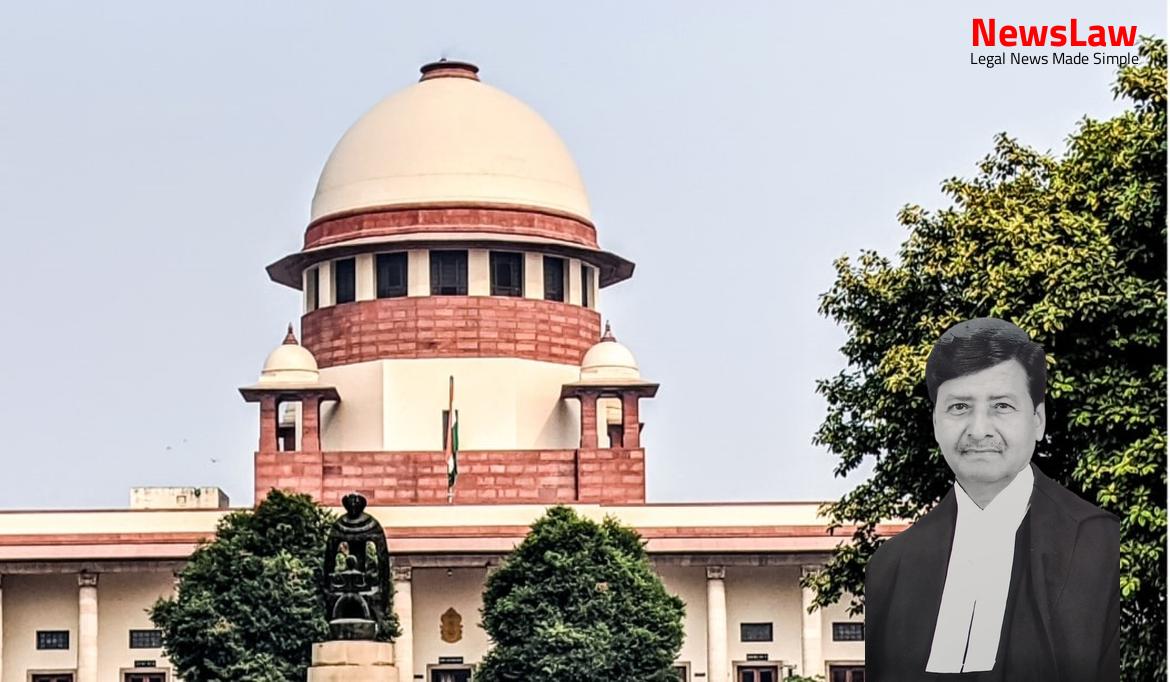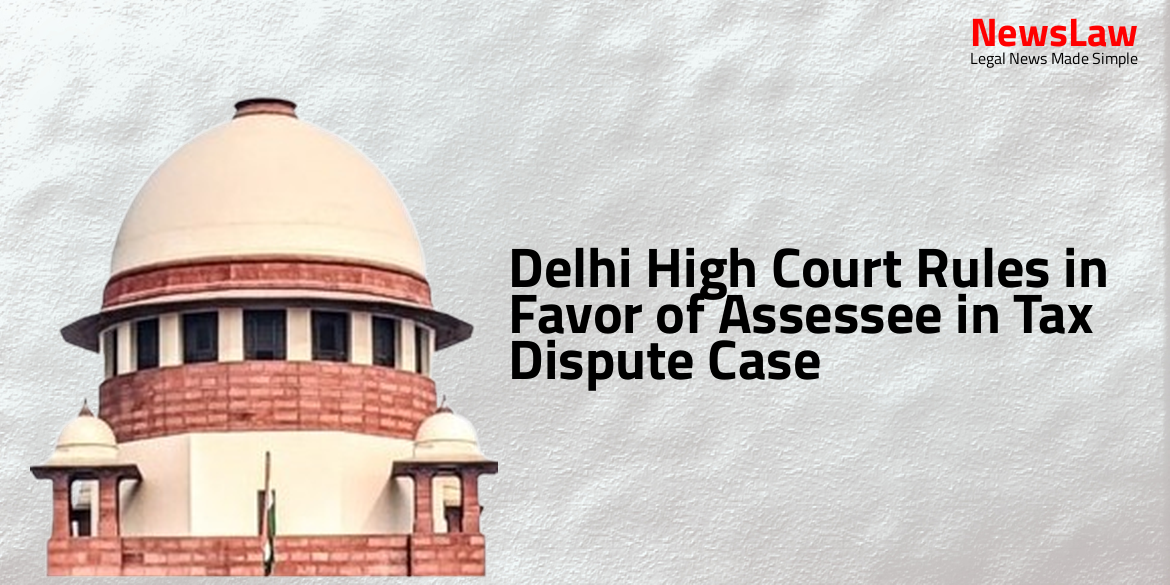The legal analysis by the court in this case delves into the critical aspect of determining the commencement date for the possession period in real estate agreements. The discussion highlights the significance of consumer protection, unfair clauses, and the remedies provided under the Consumer Protection Act. The court’s examination of these issues sets a precedent for addressing similar discrepancies in the real estate sector, ensuring fairness and protection for consumers.
Facts
- The Developer had the right to terminate the agreement and forfeit earnest money for even a single default on the part of the Buyers.
- The due date for handing over possession of apartments was determined to be 27.11.2018, 42 months from the date of obtaining the Fire Safety NOC.
- The Apartment Buyers had regularly paid instalments as per the demands raised by the Developer.
- The Building Plans were revised in 2017, leading to changes in the layout and conversion of some residential towers into commercial towers.
- Clause 13.3 of the Agreement specified a 42-month period for possession from the date of approval of the Building Plans, with a Grace Period of 180 days.
- The Developer offered possession only after receiving the Occupation Certificate in 2019.
- The delay in possession was attributed to the Developer’s failure to obtain Fire NOC in a timely manner.
- The National Commission passed an order directing a full refund of the principal amount with interest as compensation from a specific date.
- The Supreme Court dismissed the SLP filed by the Developer against this order.
- The Developer was required to refund the amount due within a specific period with interest as per the National Commission’s order.
- The National Commission held that the failure of the Developer to deliver possession of allotted flats amounted to deficiency in service.
- The complainants were entitled to a refund of the amount along with appropriate compensation.
- The Developer filed another SLP against this judgment, which was tagged to the present batch of appeals.
- The judgment was followed in another case by the National Commission.
Also Read: Upholding Judicial Integrity: Importance of Reasoned Judgments
Issue
- The issue at hand is the determination of the starting date for the 42-month period for handing over possession as per Clause 13.3.
- Developer argues for the date of Fire NOC issuance, while Apartment Buyers argue for the date of Building Plans approval.
- The point of contention is whether the 42-month period should start from Fire NOC issuance or Building Plans approval.
Also Read: Analysis of Consent Orders and Appellants’ Rights
Analysis
- The analysis of the judgement focuses on the terms of the Apartment Buyer’s Agreement being one-sided and unfair.
- The power to declare contractual terms unfair was introduced under the Consumer Protection Act, 2019, not under the Consumer Protection Act, 1986.
- The Developer’s demand for instalments was linked to construction milestones.
- The National Commission’s finding on the one-sided clauses was deemed illegal under the 1986 Act.
- The Compensation for delay in possession was calculated at Rs. 5 per sq. ft. monthly after the Grace Period.
- The Agreement clauses favored the Developer over the Apartment Buyers at each step.
- The RERA Act empowered the RERA Authority to determine compensation under specific sections of the Act.
- The Delay Compensation specified in the Agreement was perceived as inadequate compensation for construction delay.
- The Authority to grant a provisional NOC within 60 days was specified under the Haryana Fire Service Act, 2009.
- The RERA Act was established to regulate and promote the real estate sector, providing remedies like refund with interest and compensation for delays in possession.
- The chronology of Fire NOC acquisition was crucial in calculating the possession period for the apartments.
- The terms of the Apartment Buyer‘s Agreement are oppressive and one-sided.
- The terms could constitute an unfair trade practice under the Consumer Protection Act, 1986.
- Section 2(1)(c) of the Act defines a ‗complaint‘ as…
- Section 2(1)(g) of the Act defines the expression ―deficiency‖ to include any fault, shortcoming or inadequacy…
- The term ―service‖ has been defined by S. 2(1)(o).
- The Consumer Protection Act, 1986 was enacted to protect the interests of consumers and provide remedies against unfair trade practices.
- The doctrine of election, based on the rule of estoppel, was discussed in several cases including A.P. State Financial Corporation v. M/s GAR Re-rolling Corporation.
- Remedies under the Consumer Protection Act are considered in addition to remedies available under special statutes.
- The Consumer Fora have the power to redress deficiencies in service, issue directions to builders, and compensate consumers for losses.
- Incorporating unfair and one-sided clauses in agreements constitutes unfair trade practices under the Act.
- The RERA Act does not bar proceedings before consumer fora, and remedies under RERA are without prejudice to other available remedies.
- Judgments have upheld the applicability of the Consumer Protection Act despite the existence of remedies under special statutes.
- An arbitration clause does not restrain Consumer Fora from proceeding with consumer complaints according to Emaar MGF Land Ltd. v. Aftab Singh.
- The issue relates to whether apartment buyers are bound to accept offer of possession with Occupation Certificate and Delay Compensation, or have the right to terminate the Agreement.
- Delay in construction and possession is established in this case.
- Citing a relevant case where it was held that Apartment Buyers may be entitled to terminate the Agreement or seek refund with Delay Compensation.
Also Read: Legal Analysis: Appointment of Sole Arbitrator Under 1996 Act
Decision
- Apartment Buyers entitled to refund of amounts deposited with interest @ 9% S.I. per annum
- Developer not allowed to deduct Earnest Money on account of defaults including delay in obtaining Fire NOC
- Developer undertakes in Affidavit to refund principal amount to a critical buyer for medical expenses
- Default interest of 12% S.I. p.a. payable by Developer for further delays
- Grace Period of 6 months added to possession deadline
- Pending hospital bills after death of buyer’s wife considered in decision for refund
- Allottees categorized into Phase 1 and Phase 2 with different situations of possession
- Refund order to be executed within 4 weeks from judgment date
- Refund to be completed within three months from the judgment date
Case Title: IREO GRACE REALTECH PVT. LTD. Vs. ABHISHEK KHANNA (2021 INSC 13)
Case Number: C.A. No.-005785 / 2019



